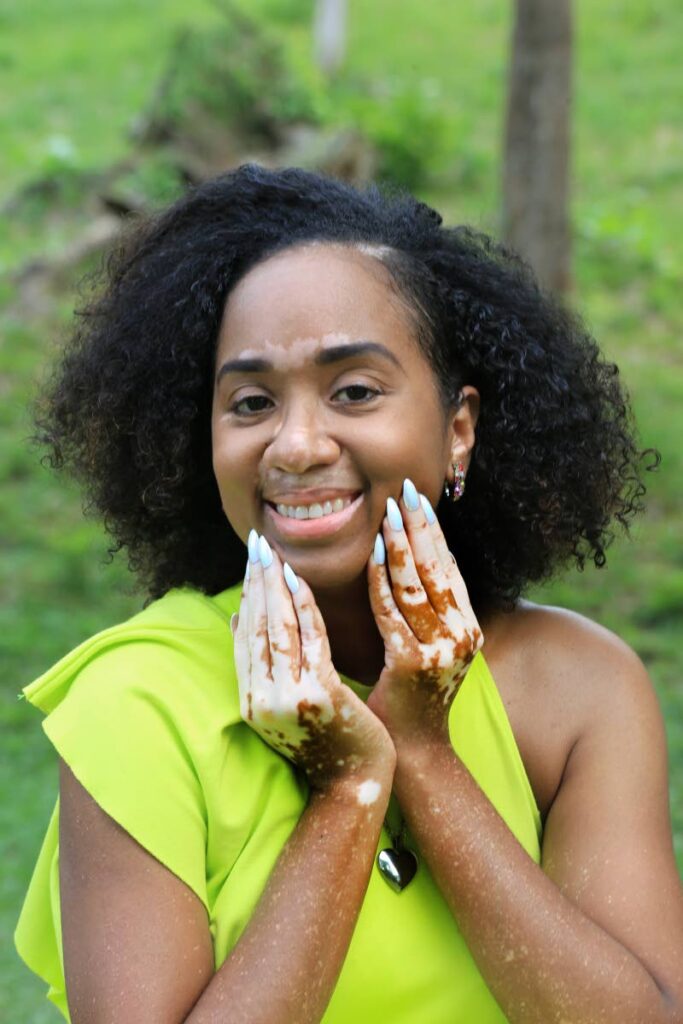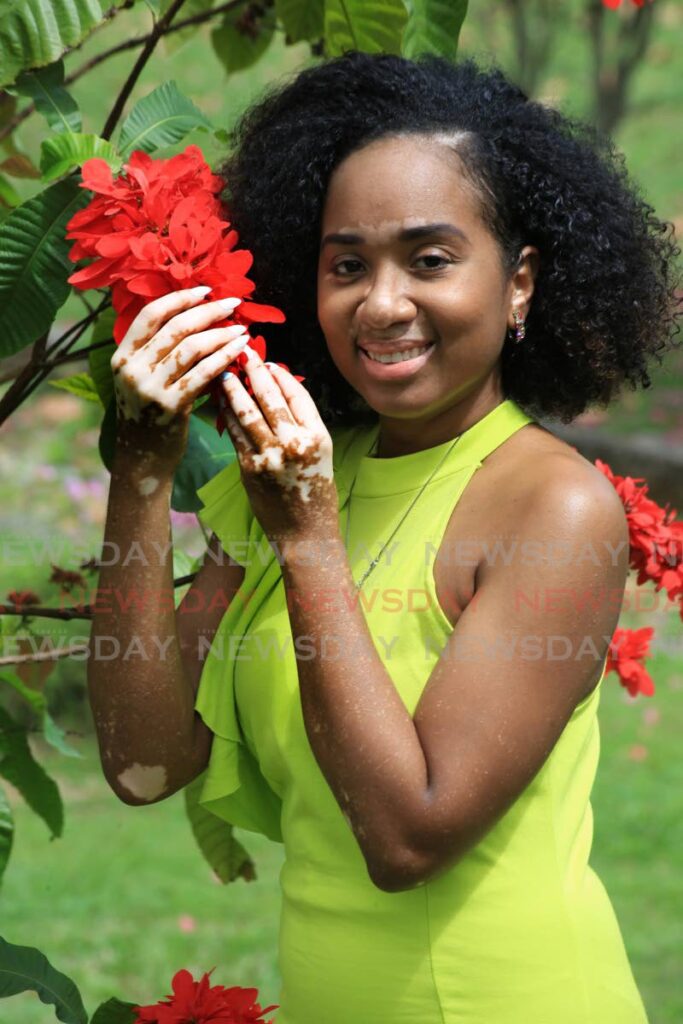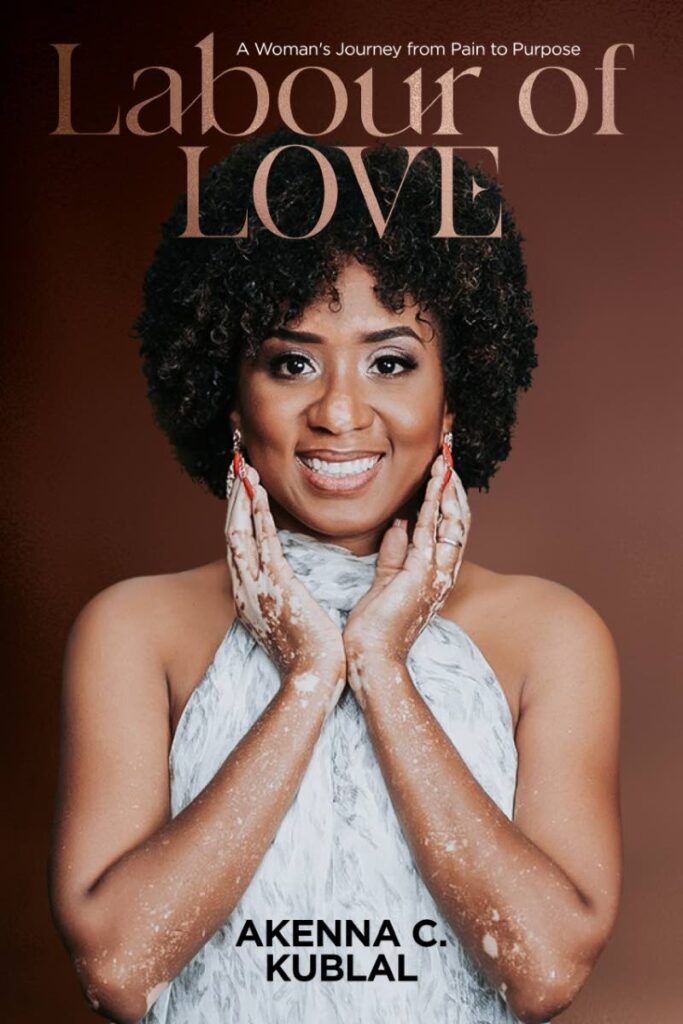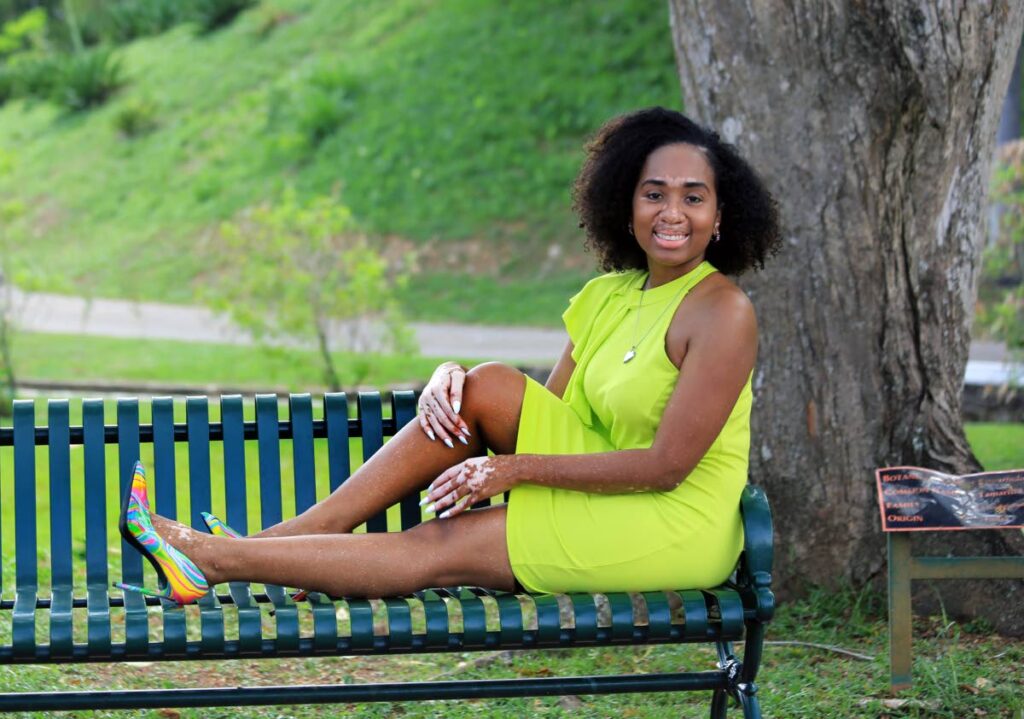See me, not my skin: Akenna Kublal advocates for vitiligo awareness

When Akenna Kublal gets on stage in Minnesota in the US to co-host women’s night at the World Vitiligo Day conference on June 24, she will hardly be out of her comfort zone. The 33-year-old trained public speaker and personal development and image consultant has been living with vitiligo since 2015 and is an advocate and spokesperson for vitiligo awareness.
The skin condition develops when the cells that produce pigment die or stop producing melanin and causes patches of skin to become lighter. The autoimmune condition affects about two per cent of the global population and may be hereditary or triggered by stress and skin trauma.
Kublal said between 2015 and now it has spread to approximately 75 per cent of her body.
“The spread was quite rapid. It’s on my face, legs, ear, scalp, almost on every part of my body,” she told WMN.

And although it took her some time to accept and appreciate that her beauty is more than skin deep, she reflects on the people and circumstances that brought her to a place where she has made it her life’s mission to help people, especially women, to see and understand the value of what lies beneath their skin.
Kublal is the founder of a women’s empowerment group called Labour of Love and has written her first book, Labour of Love: a woman’s journey from pain to purpose. The book was published earlier this year and documents her journey over the years – childhood trauma, teenage pregnancy, multiple abortions, attempted suicide, escaping domestic abuse, starting over and finding her purpose.
“There are so many parts that make up Akenna. So many different parts to the whole story. When I started getting vitiligo, I was employed as a flight attendant and I thought that was the worst thing that could happen to me at that time because I was in a job where image was so important.”
She said even though she was already on the way out of flying because of an injury she had sustained on the job, the onset of the condition was a huge blow to her ego.
“I was beautiful and my makeup and my hair always looked great. To me, that was beauty.”
She said when she first got vitiligo, the “your skin looks like a cow” comments really bothered her. But now, after working to get where she's at now, she is no longer self conscious about her looks.
“If I have to attend an event I’ll use a little makeup, but I always make sure and tell the makeup artist I don’t want to hide the area of the vitiligo. I do this intentionally because I have two daughters and I think it’s important for me to show them that you don’t have to cover up what people might think is imperfection. Confidence starts with you.”
So what does she believe was her trigger for the development of vitiligo?

"The doctor told me that my immune system had been broken down because of the level of stress that I was under over a period of time, and now, my skin was basically attacking itself and destroying healthy melanin cells and seeing it as foreign," Kublal wrote in her book.
She told WMN a number of things would have contributed to that level of stress – foremost among them, her abusive relationship. As a Christian wife and mother she stayed in it for years because she felt it was the right thing to do.
“One time the police came to my home after a dispute and said, ‘Oh gosh, allyuh is a nice couple, patch that up nah,’ because we were the perfect family on the outside. I never told anybody he was always cheating on me and when I tried to leave he was beating me up because it was embarrassing.”
Eventually, though, she had had enough and despite the uncertainty, found the courage to leave with her children.
“My enough was motivated by my daughters getting older and being more vocal about what they didn’t like…Thankfully, who my children’s father is now is not who he was then, but we can never get back together because that trauma is always there. There are certain things that happen when there is physical abuse…It shows that abusers can be rehabilitated, but that is not the victim's burden to bear. Some abusers change, others don’t and in some cases the victim ends up dead. What helped me was getting trusted people involved.”
She said her parents were separated when she was a child and she vowed that when she had a family of her own she would do whatever it took to keep the family together. But by leaving she believes she has taught her daughters a valuable lesson.
“It’s ironic now that the very thing I didn’t want is what I use to help others… Even though I went through so much with domestic violence, I won’t allow it to be my identity. I want women to understand that not because you’ve been a victim means you have to remain a victim. How you live your life after the abuse really determines if you’re a survivor or not.”
Kublal said during the pandemic, after she had stopped flying, she was offered several jobs, in and out the airline industry, but she had to turn them down because her daughters were home from school.
“It was a crazy, hectic time and I saw how much they needed me so I had to make certain sacrifices to be home. I think then, too, was how the vitiligo progressed so much over those two years. The more you’re stressed, the more it will progress.”

But she said, in as much as she has grown to accept and love herself with the condition, there are times when the insecurities still creep in. She said she recently went for an interview and was asked how having vitiligo would affect her work at the company.
“I started to feel so small, going back to that Akenna from years ago. I ran out after the interview and told myself I wouldn’t go back even if they called me. I didn’t get called back and I wasn’t expecting to because from the time they asked me that question, I realised they were not prepared for what I would look like.
"The initial contact was via phone...We often make people feel bad if they have something that’s different from what we are used to. People who are close to me know me, so they see Akenna. A person who meets me for the first time sees vitiligo. It presents itself first and then I have to explain who I am behind the vitiligo.”
This type of scenario is something Kublal said the empowerment group addresses.
“This is really my passion now. As a young woman, I had big dreams to achieve so much. I got into an abusive relationship very early and a lot of my dreams went downhill. It wasn’t until many years later that I realised the importance of understanding that everything comes together in the end. Every bad thing that happens in your life can be used for something good based on the way that you see it. My mission now is to try and help mainly women and girls understand this.”

She said so many women, like her, have developed lifestyle diseases because of what they allow themselves to go through.
“We try to be everything to everyone else, but eventually it can take a toll on our bodies. Thankfully for me it was vitiligo. But it could have been lupus or another more serious type of autoimmune disease. It’s important for women to start taking care of themselves. It's okay to put yourself first, especially coming out to the pandemic.”
Kublal's background is in hospitality and her challenges have motivated her to "pivot." She is the CEO of Akenna Kublal Global Group LLC, an events, personal development and image consultancy company. She is pursuing her BSc in psychology with a minor in human resource management at the UWI, St Augustine, and is qualified in VIP handling and protocol, business etiquette, customer service and leadership training.
“I teach people how to be more confident, how to love themselves from the inside out, how to write resumes, how to try to not make people feel the way that I felt when I initially developed vitiligo...I want to try to change the dynamic of young people going into the corporate world with a difference, perhaps starting with something as simple as empathy.”
She said over the years she has found that her work helping women has allowed her to help herself – being to other women what she didn’t have during her struggles.
“That’s why I push myself so hard to help women now because I know what it feels like to need help.”
She said her long-term goal is to open a safe house and outreach centre for women, but for now she will focus on working with girls and young women before they start entering into relationships. She is planning a summer camp in east Trinidad for the first week in August for 60-80 girls, ages 13-16.
“I’ll bring in professionals to talk to them about etiquette, image management, mental health issues, relationships. At the end of it each girl will leave with a better appreciation of themselves and a back pack full of school supplies. We don’t have a venue yet, so if anyone has some rooms they can spare, we will welcome it.”
For more information visit www.akennakublalglobal.com
Email: info@akennakublalglobal.com
Follow: @akenna_kublal @labouroflovett @Akenna Kublal


Comments
"See me, not my skin: Akenna Kublal advocates for vitiligo awareness"